Search Images
Browse Content (p. 785)

Image
Three Doctors Attend a Man with the Plague
Woodcutting of a plague-stricken man lying in bed, attended by three physicians. From the Pestbuch, a 16th Century CE medical treatise by Hieronymous Brunschwig (c. 1450-1512 CE). (Courtesy of the Historical Medical Library of The College...

Image
Citizens of Tournai Bury Their Dead
Miniature from a folio of the Antiquitates Flandriae, depicting the citizens of Tournai, Belgium burying those who died of plague during the Black Death. By Pierart dou Tielt (c. 1340-1360 CE). Made c. 1353. (Royal Library of Belgium)

Image
Plague in an Ancient City
"Plague in an Ancient City" by Michiel Sweerts (1618-1664 CE) is believed to depict the Plague of Athens (430-427 BCE). Oil on canvas. Painted c. 1652-1654 CE. 118.7 cm (46.7 in) x 170.8 cm (67.2 in). (Courtesy of Los Angeles County Museum...

Image
The Triumph of Death
"The Triumph of Death" (Dutch: "De triomf van de Doods") is a painting by Dutch artist Pieter Bruegel the Elder (c. 1525-1569 CE). Oil on panel. Made c. 1562 CE. 117 cm × 162 cm (46 in × 63.8 in). (Museo del Prado, Madrid)
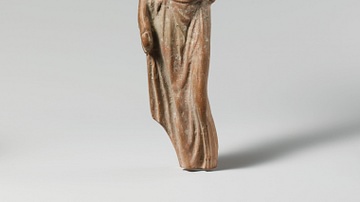
Image
Greek Statuette of an Emaciated Woman
A Greek statuette of an emaciated woman from Smyrna, Asia Minor. The woman depicted has an emaciated, skeletal frame and distended belly. Her pose, dress, and youthful hairstyle indicates that she is a young woman suffering from a debilitating...
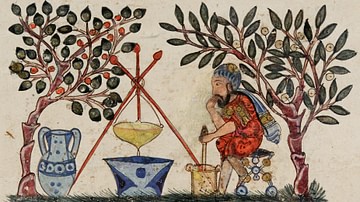
Image
Physician Preparing an Elixir from De Materia Medica
Depiction of a physician preparing an elixir. Illustration from a folio of an Arabic translation of the 1st Century CE Greek medical text De Materia Medica. Iraq, 1224 CE. Ink, opaque watercolor, and gold on paper. (Courtesy of the Metropolitan...
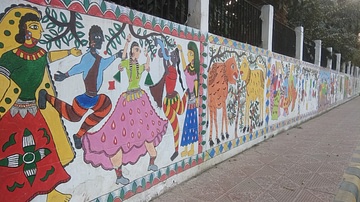
Image
Madhubani Painting Mural
A modern mural in the Madhubani painting style. Patna, Bihar, India.
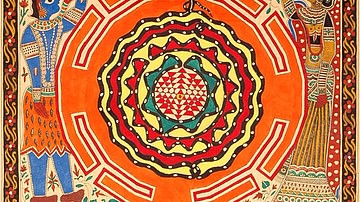
Image
Ten Mahavidyas, Shiva and Sakti Madhubani Painting
A Madhubani painting showing the Ten Mahavidyas (10 aspects of wisdom associated with Parvati), Shiva and Sakti, with the serpent Shri Yantra.

Image
Krishna & Rada Madhubani Painting
A Madhubani painting depicting Krishna and Rada. Painted by Padma Shri Sita Devi
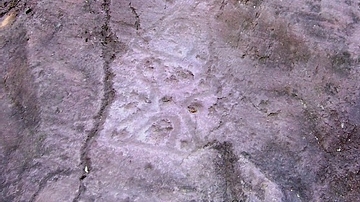
Image
Camunian Rose, Valcamonica
A rock carving known as the Camunian Rose at Valcamonica, Lombardy, Italy. 2800-2400 BCE.